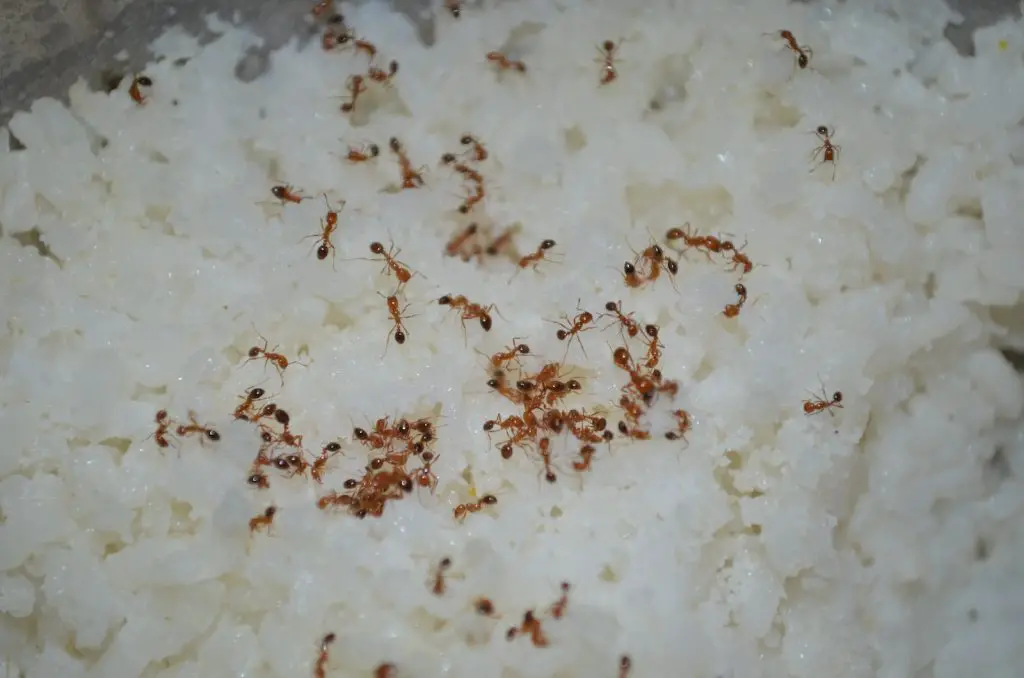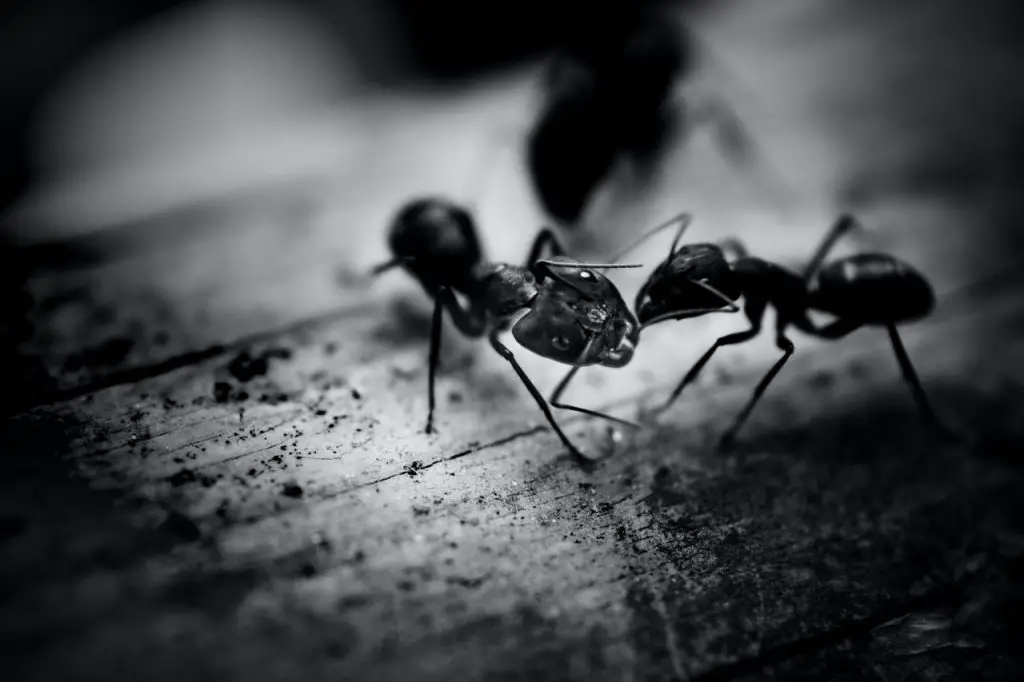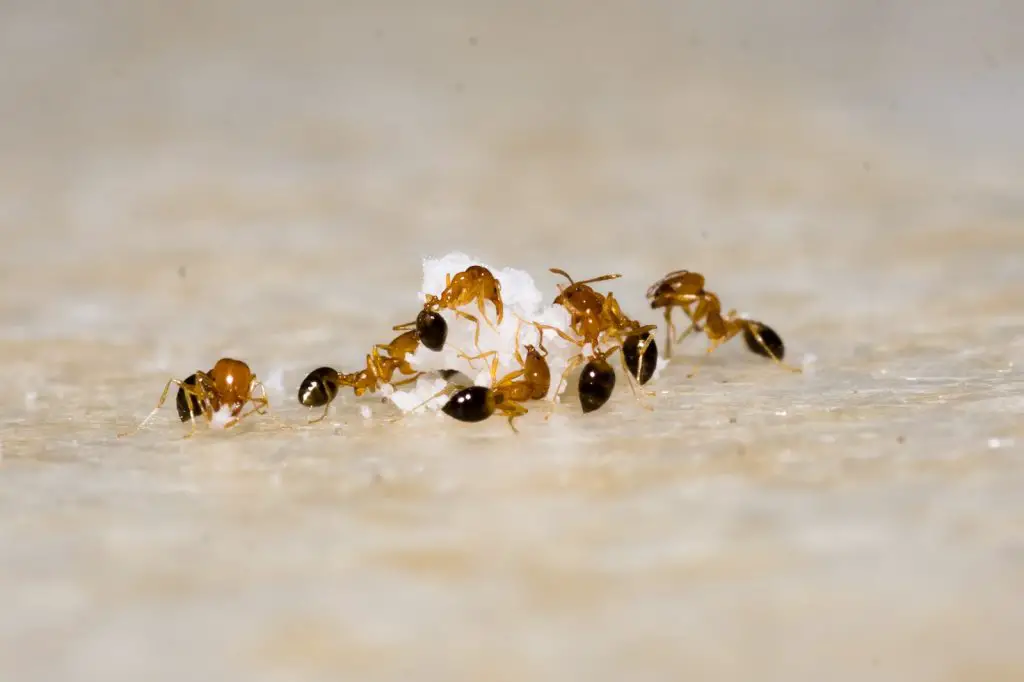Are you ready to unravel the captivating mystery of whether ants possess the power of smell?
Picture this, tiny ants hustling across your kitchen counter, drawn by an irresistible aroma.
Intrigued by the scene unfolding in your kitchen, you might find yourself wondering about the remarkable mechanisms that enable these little creatures to navigate with such accuracy.
How do ants smell and follow scent trails invisible to our senses? The answer lies in their finely tuned antennae. Which act as their sensory superpower.
We’ll explore the evidence that supports ants’ exceptional smelling ability, from their finely-tuned antennae to their remarkable ability to sniff out food hidden within your home.
Let’s get started.
Do Ants Smell? Sniffing Out the Truth
These tiny creatures have an extraordinary sense of smell, because of their finely-tuned antennae and specialized smell detector.
Scientific studies have shown that ants navigate their environment, detect food sources, and communicate through complex scent trails, demonstrating the remarkable nature of their sense of smell excellence.
The incredible sensitivity of ants’ antennae enables them to detect even the faintest smells in their environment.
They rely on chemical signals, known as pheromones, to establish scent trails that guide them toward food sources and communicate important information to their fellow colony members.
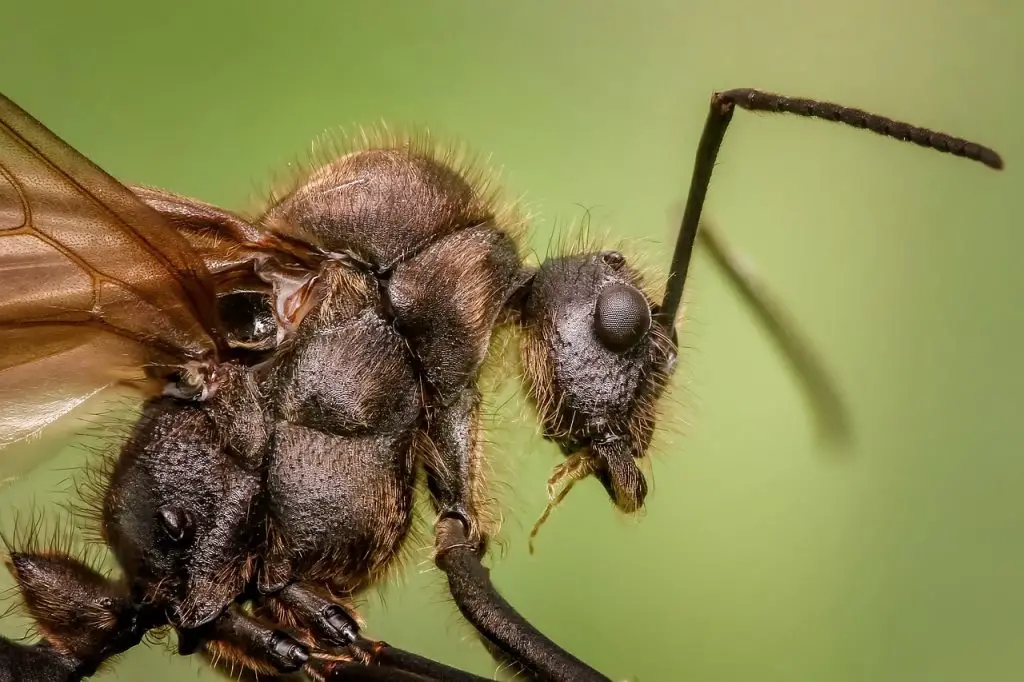
These scent trails act as invisible maps, guiding ants directly to their intended destinations. It’s a remarkable display of coordination and communication, all driven by their exceptional sense of smell.
The power of ant olfaction goes beyond navigation and food detection. Ants also use their sense of smell for intricate social interactions within their colonies.
Through scent-based communication, they can identify members of their own colony, differentiate between individuals from rival colonies, and convey information about food availability or potential threats.
This complex web of scented communication enables ants to maintain the organization and cooperation necessary for the survival of their societies.
So, the next time you witness ants diligently going about their business, remember that behind their seemingly simple exterior lies a sophisticated olfactory system.
The Role of Antennae in Detecting Smell
Ants possess specialized receptors on their antennae that are specifically designed for detecting scents
They also have specialized receptors that detect and interpret pheromone chemical signals.
Pheromones are chemical substances produced and released by ants, to communicate with others of the same species.
Ants use their antennas to pick up pheromones released by other ants, allowing them to communicate and coordinate their activities within the colony.
The antennas’ sensitivity to pheromones enables ants to navigate, respond to threats, and maintain social cohesion.
These receptors are incredibly important as they allow ants to perceive and distinguish various odors in their environment.
Antennae play a crucial role in the detection of scents by ants.
These small, sensitive structures act as their primary sensory organs, allowing them to perceive and interpret various odors in their environment.
Through their antennae, ants can pick up even the faintest traces of scents, guiding them toward food sources, signaling danger, and facilitating communication within their colonies.
The antennae possess specialized receptors that enable ants to distinguish different scents and navigate their surroundings with precision. In essence, the antennae function as the gateway through which ants access and make sense of the world of smells around them.
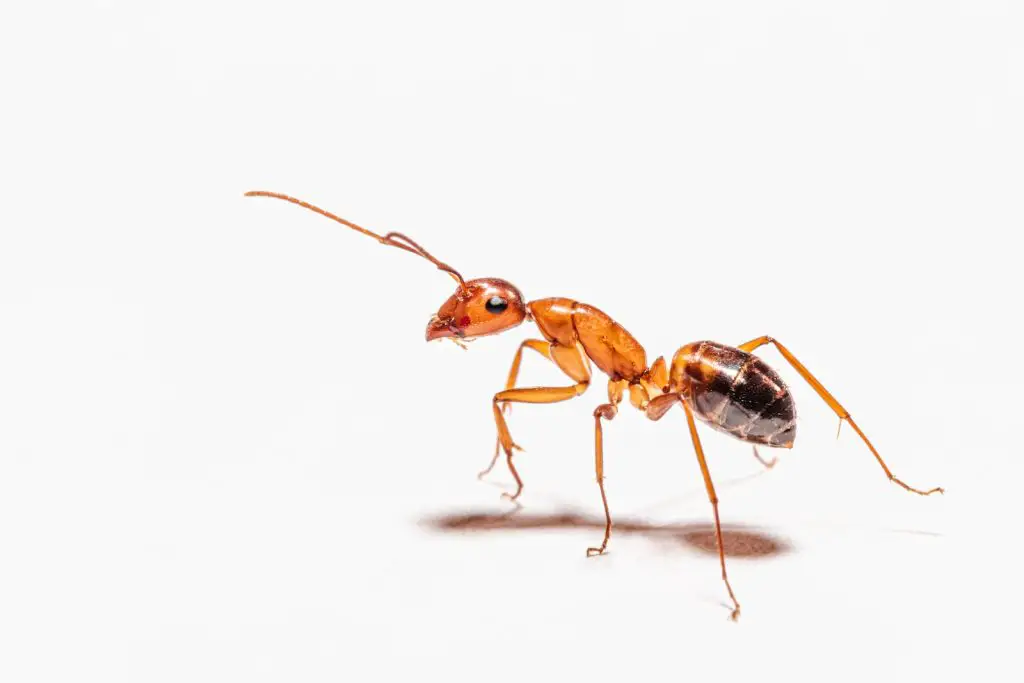
How Far Can Ants Smell?
Ants possess a powerful sense of smell that enables them to detect food from astonishing distances.
Ants can pick up the scent of food sources located hundreds of miles away.
Once a tempting aroma travels through the air, the workers of an ant colony waste no time in responding. They will instinctively follow the scent trail and make their way toward the source of the enticing smell.
It’s truly amazing to see how ants work together when they find a scent related to food. They coordinate their actions very precisely and never give up on their search for food.
The smell of Dead Ants
Dead ants can have a distinctive odor that can be described as slightly acidic or musty.
When ants die, they release oleic acid. This scent is detected by other ants. Who then transport the dead ant to a designated area called the dead ant pile.
The specific scent may vary depending on factors such as the species of ant and the environment.
In general, the smell of dead ants is often a result of the decomposition process. And the release of certain chemicals. It can be similar to the smell of decay or a faint, unpleasant odor.
However, it’s important to note that the odor of dead ants is typically not strong or overpowering. Especially when dealing with a few individual ants.
Why Do Ants Smell When You Kill Them?
When you kill ants, they release a distinctive smell that can be detected. This smell serves as a warning signal to other ants in the vicinity, alerting them to potential danger.
It’s a natural defense mechanism that ants have developed to communicate and protect their colony.
The scent released upon killing an ant is a signal that something harmful or threatening is present, prompting other ants to be cautious and avoid the area.
So, if you happen to come across the smell of ants after eliminating one. It’s their way of sending a message to their fellow ants to stay away and stay safe.
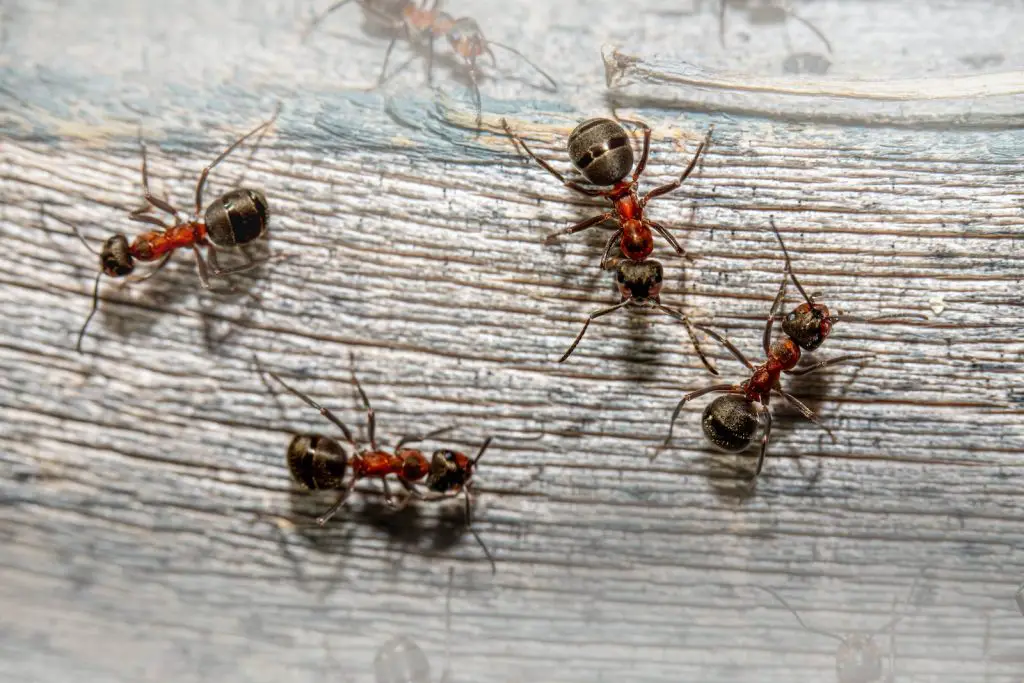
Aromatic Adventures: Exploring the Different Smells Produced by Ants
Formic Acid
Species of fire ants and stink ants emit formic acid, which is a common component of ant odor. Ants produce formic acid as a defense mechanism when they feel threatened. It can repel predators and act as a deterrent to protect the ants and their colony.
Pheromones
Pheromones are chemical signals used by ants for communication and marking trails. Different pheromones can produce specific smells that convey various messages to other ants. Ants use trail pheromones to mark paths to food sources, and they release alarm pheromones to alert the colony to potential danger.
Camponotus Fragrance
Some species of Camponotus ants have a distinct and pleasant smell often described as sweet or fruity. Although scientists do not fully understand the specific purpose of this fragrance, they believe it plays a role in species recognition and communication within the colony.
Citronella
Certain ants, such as the citronella ant (Acanthomyops sp.), emit a scent similar to citronella. Which is known for its lemon-like fragrance. This smell likely serves as a form of defense, deterring predators or potential threats.
Musty Odor
When crushed or disturbed, ants release a musty or earthy odor, which stems from the chemicals produced during the decomposition of their bodies or the breakdown of glandular secretions. It can serve as a warning signal or a defense mechanism against potential predators.
Acetic Acid
Certain ant species emit a vinegar-like smell due to the presence of acetic acid in their odor. Like formic acid, acetic acid can act as a deterrent to predators, providing protection for the ants and their colony.
Minty Fragrance
Some ants, such as the mint-scented Argentine ant (Linepithema humile), emit a minty fragrance when disturbed. While the exact purpose of this minty smell is not fully understood, scientists believe it plays a role in species recognition and communication within the colony.
Odorous House Ants: The Enigma of Their Distinctive Scent
Odorous house ants (Tapinoma sessile) are a species of small, brown ants commonly found in households.
Despite their small size, they make their presence known with their distinctive odor, reminiscent of a blend of rotten coconuts or even blue cheese.
When crushed or disturbed, ants emit an intriguing scent that fills the air and leaves an unforgettable impression. Researchers believe that this odor acts as a defense mechanism, deterring potential predators and signaling danger within the ant colony.
While their aroma may not be pleasing to human noses.
Conclusion
The exploration of ants and their olfactory abilities sheds light on the question, Do ants smell?” The evidence presented confirms that ants indeed possess an extraordinary sense of smell.
Their finely-tuned antennae and specialized smell detectors enable them to navigate their environment, detect food sources, and engage in complex scent-based communication.
Ants rely on chemical signals, such as pheromones, to establish scent trails, identify colony members, communicate with rival colonies, and convey important information. Their antennae serve as primary sensory organs, allowing them to perceive and interpret various odors in their surroundings.
Remarkably, ants can detect food from astonishing distances, coordinating their actions precisely to follow scent trails. The smell of dead ants, the scent released when ants are killed, and the array of scents produced by ants all have specific roles in their defense mechanisms, communication, and species recognition.
The distinctive odor of odorous house ants is an enigmatic feature serving as a defense mechanism and signaling danger.

